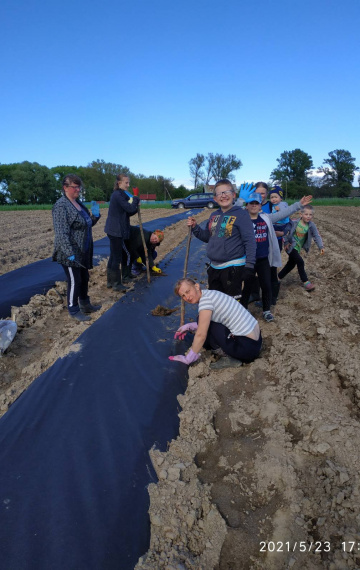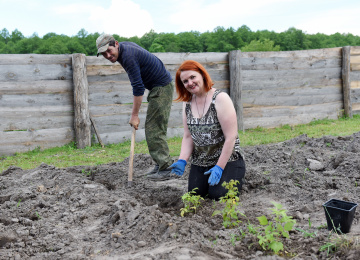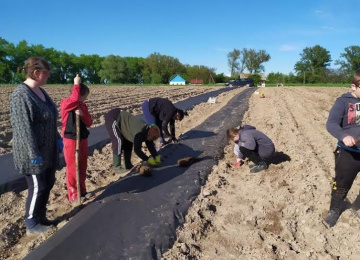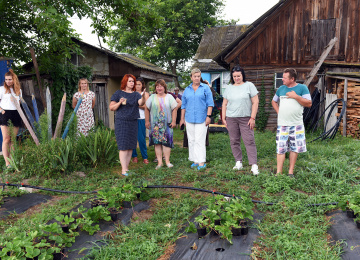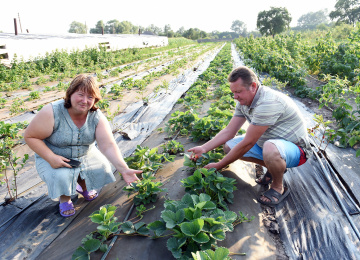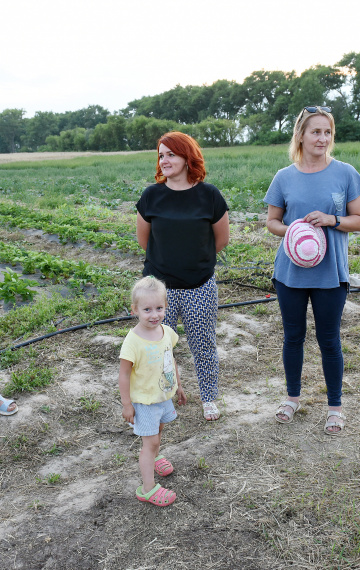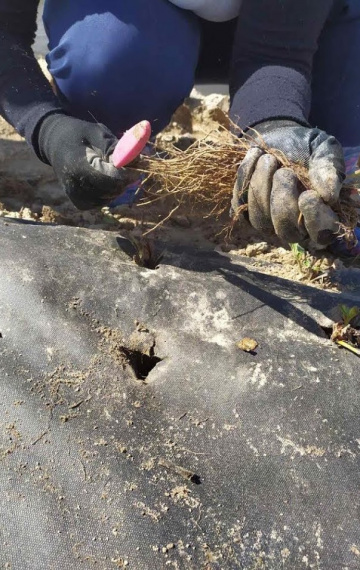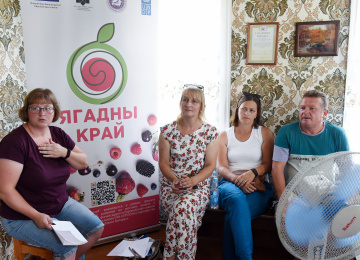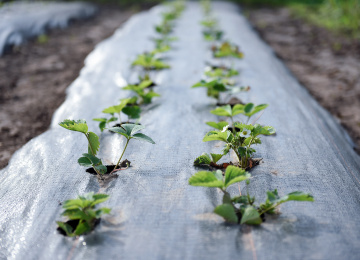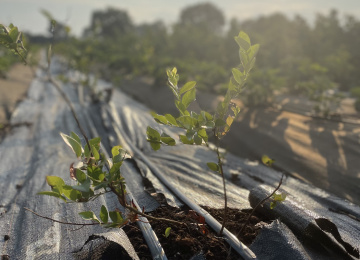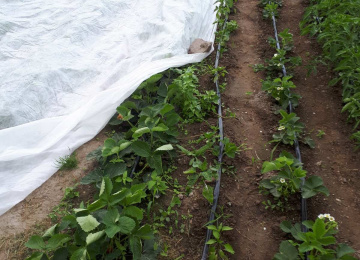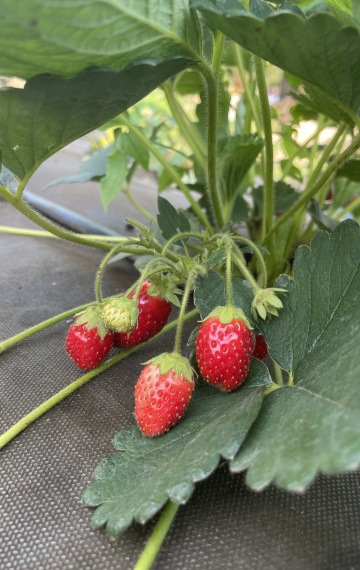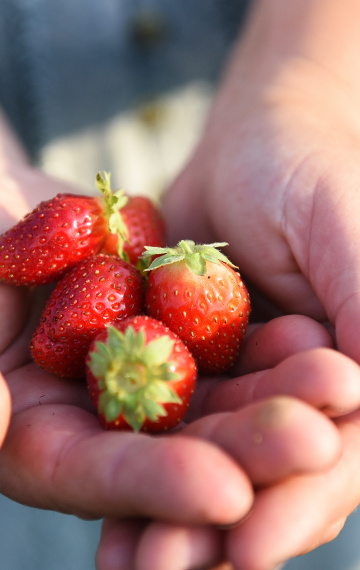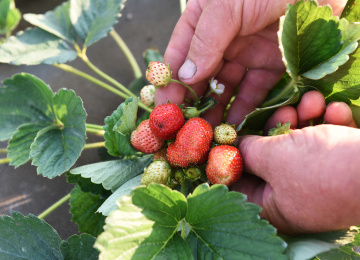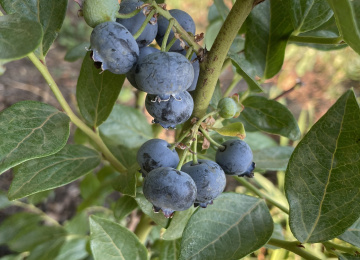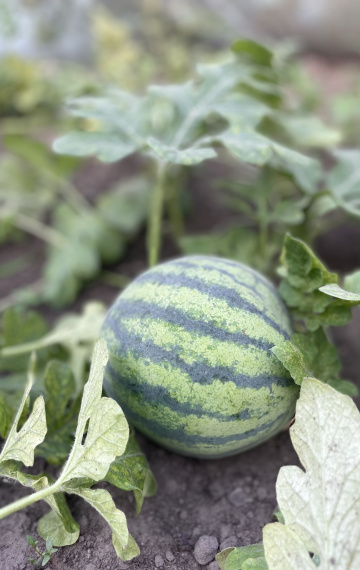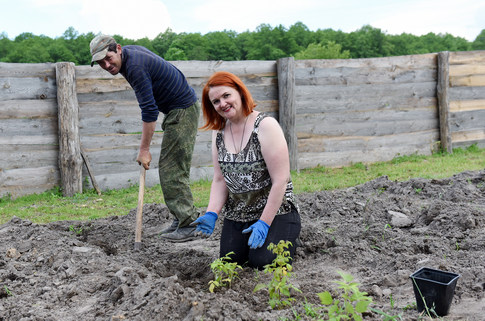
Nadezhda Abashina is the owner of one of the first private farms in Belarus. She says the impact of global warming on Belarusian farmers is quite visible.
“We’ve had one snowy winter in 15 years,” Abashina says. “These days, we plant radishes in February-March, and sell them by April-May.”
Nadezhnoe was a pioneer farm in independent Belarus, located in the very south of the country, in Bragin Oblast. About 30 years ago, it was established by Nadezhda's grandfather, and his granddaughters have been following in his footsteps for the last three years.
“We didn’t want to give up on the legacy of our grandparents, so we decided to continue their work,” says Abashina. “We’re not the kind of people to just sit around idly, so we took on the farm. There’s a lot of work all year round. During the season, we water and harvest from dawn to dusk. At other times we’re busy pruning, seeding and raising seedlings.”
In Soviet times, the farm mainly produced potatoes and cabbages, but the climate and people’s needs have changed a lot over the last three decades. The family is gradually abandoning vegetables and allotting six hectares for new crops: strawberries, currants, rapeseed, and other grains. There are two reasons for this: climate change and growing competition.
In a small town in the south, many people are already gardening, and there is no need to buy farm products. So, the family often sells products to entrepreneurs at markets, or wholesale to grocery stores.
“The main problem is always the same — how to sell,” Abashina admits. “Bragin is far from major cities, and even the nearest regional city, Gomel, is 110 km away. So, it makes little sense to carry 20 kg of strawberries to a city market. There are two options left: to grow more produce and sell it in Gomel, or to grow less, but earlier or later than others, so that we can sell it locally. So far, we prefer the latter, because we plant radishes in February-March and sell them by April-May. We plant strawberries later, and sell them when everyone else has run out.”
“Five years ago, I had no idea how to grow radishes”
For about 8 years, the Abashin sisters attended seminars for farmers. Later, the Nadezhnoe Farm became a partner of the Berry Land cluster initiative and received some help from a project called “Support for local economic development in Belarus” being implemented by UNDP in partnership with the Belarusian Ministry of Economy. Thus the sisters acquired a rotary tiller, a drip irrigation system, a trimmer and berry seedlings.
“Some five years ago I had no idea how to grow radishes, but gradually I began to try and learn something new,” recalls Abashina. “It was the UNDP project that pushed us to continue farming. We attended seminars and exchanged experience with other farmers. We understood that we had to give up uncompetitive vegetables and switch to berries. We knew how to plant and grow berries, but we didn’t have the means to buy seedlings. This project helped us quickly do what we couldn’t have done on our own for a long time.”
Also within the framework of this project, which is funded by the EU under the EU4Business initiative to support economic reforms, farmers began to collaborate with the Institute of Radiology, which checks products for the presence of radiation and nitrates. After all, Bragin is one of the Belarusian cities most affected by the Chornobyl accident and is known to have high radiation levels.
“Once a year, we submit our crops for radiation checks, and we do the same before selling in bulk to stores,” says Abashina. “So far, we’ve never recorded radiation above permissible levels. On the contrary, it’s generally 10 times lower than the norm. After all, we all have families and children, so we ourselves would not eat or sell contaminated produce.”
“Warming has caused an influx of tarantulas, which are not typical in our climate”
Over the past 25 years, the average temperature in Belarus has risen 1.2°C. Such a seemingly insignificant increase is actually very noticeable to any farmer.
“The climate has become much warmer and this has impacted our business as well,” says Abashina. “Over the past 15 years, we have had only one snowy winter. The weather has been above freezing already in February. Our grandparents would never have believed that dill and parsley could be planted outdoors in February, and radishes and lettuce in March!”
Although winters have become short and almost snowless, the warming has not only prolonged the harvest season, but also caused problems: an influx of pests and diseases that were unknown before.
“With the warming, we’ve seen American butterflies and many more new spiders and bugs,” notes Abashina. “We take pictures of them all, and then look online to see what species they are because we need to understand whether an insect is harmful or not, and whether we need to beware. There are now a lot of wasp spiders like argiopebruennichi here, and we’ve even seen an influx of tarantulas, which are not typical in our climate. Some spiders we haven’t been able to identify yet—and they have a very painful bite!”
The Abashin sisters look after their farm while holding down regular jobs. Nadezhda works as a teacher, so her annual leave falls in summer, which makes farming easier. For now, farming is her way to keep her interested and make extra money while on maternity leave.
“So far we all live off our day jobs,” Abashina says. “Whatever we make from farming, we immediately invest in the farm, so there is still not much profit. We would need more than six hectares of land to make real money. We would also have to give up our other jobs and focus only on the farm. Right now we can’t do this, but in the future—who knows?”
This article was prepared by the “EU for Climate” and “Support for local economic development in Belarus” projects.
The EU4Climate project is being implemented by UNDP in partnership with the Belarusian Ministry of Natural Resources and Environmental Protection, and is funded by the European Union.
The project Support for Local Economic Development in Belarus is also implemented by UNDP under the EU4Business Initiative in partnership with Belarusian Ministry of Economy, and funded by the European Union.
